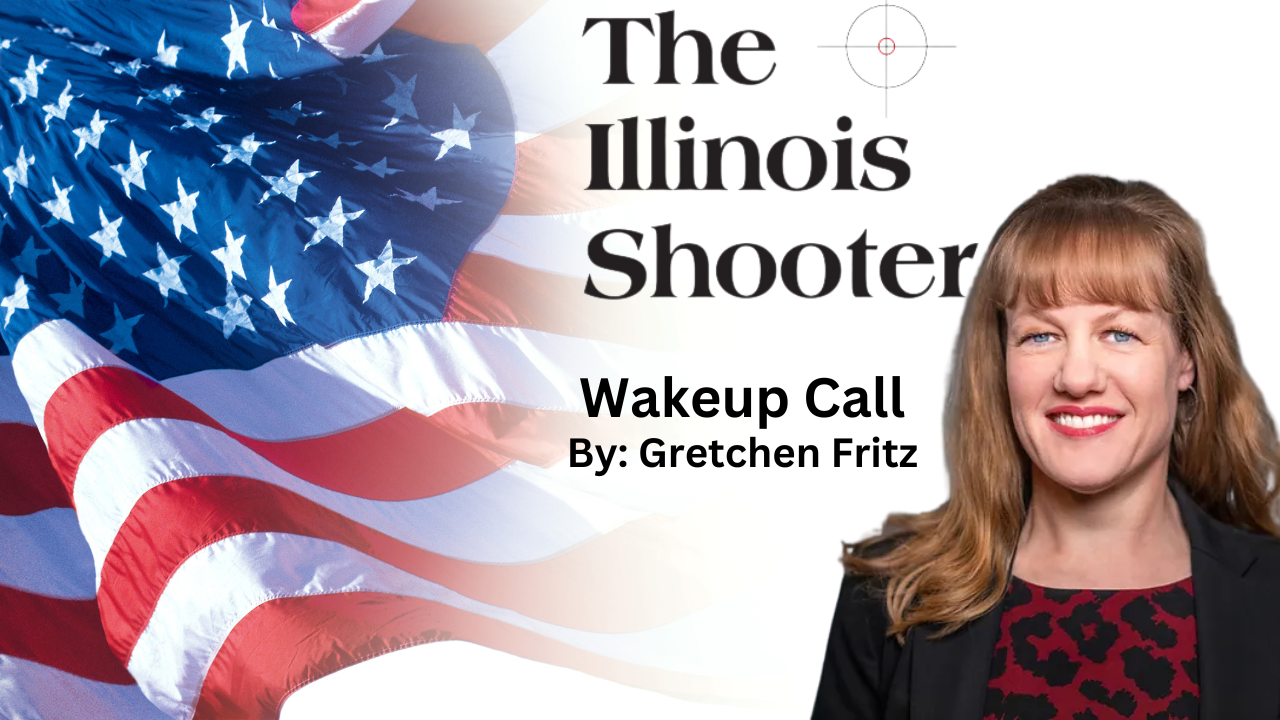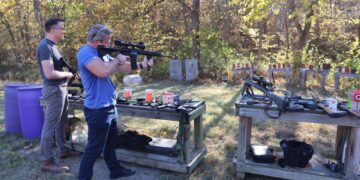By Gretchen A. Fritz
Bombshell confession: I like shopping. Okay, a woman who likes shopping probably isn’t that unusual. When I am browsing at the local TJ Maxx, sometimes I look around and think, “I may be the only person in here with a gun.” This is significant: the places that women go are often different than the places that men tend to go. In a grocery store, the ratio of women and men may be around 1:1, but in a department store, shoe store or clothing store, that likely will not be the case. When the $#!+ hits the fan, if Elisjsha Dicken is not shopping in your mall, you may have to be the person who stops a mass public shooting.
Carry rate of women vs. men
No one knows how many female gun owners there are in the United States or how many of them carry concealed. But in 2017 Pew Research Center surveyed 1269 gun owners. At that time, 39% of men and 22% of women were gun owners. That gap appears to be shrinking: “Preliminary data from Harvard’s School of Public Health suggest that women accounted for about half of all gun purchases between 2019 and 2021, and that new gun owners are more likely to be female.” (voanews.com) If we assume that there are more female gun owners in 2022 than there were in 2017, maybe we’re up to 25% female gun ownership.
How many of those gun-owning women carry their guns? According to the 2017 Pew Research Center report, “among those who own handguns, equal shares of men and women (26% each) say they carry their gun outside their home all or most of the time.” Twenty-six percent of 39% (men) is going to be a higher resultant number than 26% of 25% (women). If we had 100 representative people in a room, 10 men and 6-7 women would be carrying concealed.
Oh, but don’t forget that in Illinois, the rate of concealed carry is only about 2.5%. The Pew Research Center numbers are a national average. So in a room of 100 people in Illinois, only 2-3 people are likely carrying, unless you’re at an ISRA meeting or a Friends of NRA banquet.
Home alone
Another reason to be ready to act is that we may often find ourselves home alone. Since the COVID-19 lockdowns, many people have continued to work from home, increasing the numbers of people who are home throughout the day. Even if you keep your doors locked, bad people may still enter or try to. Just over the border in Milwaukee, in mid-August, a mom had to jump out of the shower, grab her gun and shoot an intruder when she heard her 12- and 14-year-old children screaming, as reported by AWR Hawkins.
Crime is going to get worse—much worse—after January 1 unless the Safety, Accountability, Fairness and Equity-Today Act (aka HB3653 and SAFE-T Act) is repealed or further fixed by the Illinois General Assembly. Some of the most egregious provisions include no cash bail except for the most heinous crimes (like first degree murder) and police only being able to issue citations, not make arrests, for Class B and C misdemeanors. If a suspect does not appear for court, a warrant will not be issued for their arrest; they will merely be invited to appear at a rescheduled court date, a process that can go on nearly interminably under the new law.
Be prepared
Hopefully your concealed carry course emphasized the importance of practice: clean, safe, effective draw from holster and shooting. I implore women to develop mental preparedness as well. Honestly and introspectively think about the places you regularly go and the risks that you may encounter there. Think about points of entry for bad people and points of exit for victims. Think about cover, which is something that can stop a bullet, and concealment. Practice situational awareness, which requires a lot of mental training until it becomes a habit.
If you believe, as I do, that you may very well have to use your gun for self-defense or in defense of another, you need a plan for what happens after that. First and foremost, you’re going to need a lawyer. You may also need to bond out of jail (you’re a law-abiding citizen, not a criminal, so the new “no cash bail” law probably won’t help you). In my opinion, the best and easiest way to prepare for the aftermath of using your gun is to buy concealed carry insurance.
Concealed carry insurance is different from general legal insurance coverage, which requires you to be found innocent before it pays anything. Concealed carry insurance, on the other hand, will give you up front cash assistance for the things you will likely need, like money to retain a lawyer, money to bond out of jail, and money to help you with expenses due to time lost from work. It may even help pay for psychological counseling. The various plans all offer 800 numbers for you to call after using your gun for self-defense to put you in touch with a criminal defense attorney in your state right away.
Other than these similarities, all the plans are different, so you have to do your homework and decide which plan is best for you.
I hope I have at least gotten you to start thinking pragmatically about concealed carry and self-defense. You may someday be faced with the need to woman up and intervene.
Reprinted from The Illinois Shooter









